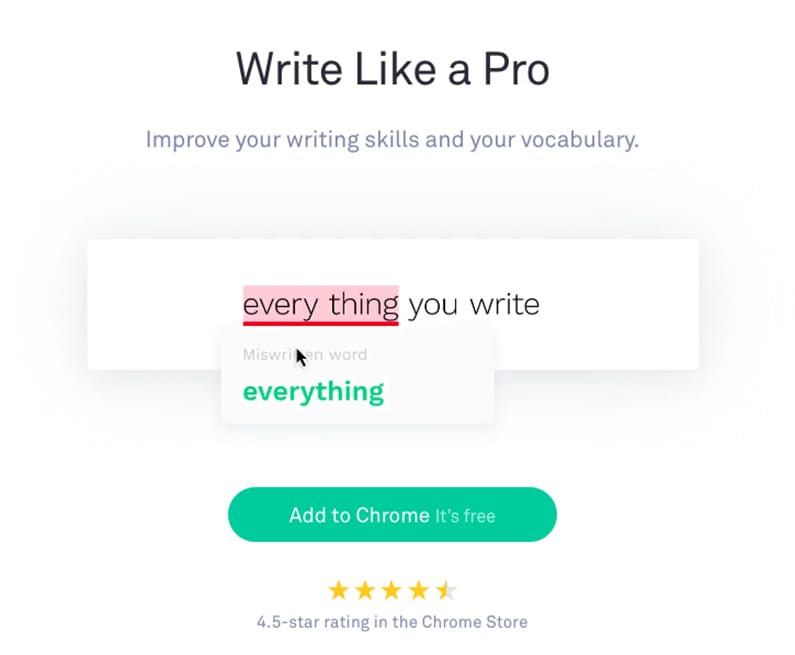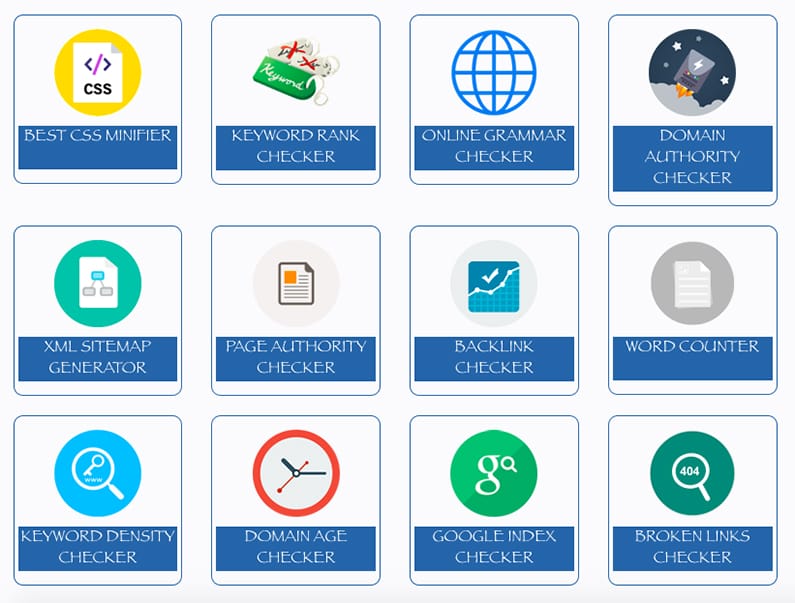Does your content marketing strategy force you to write about topics that other marketers – and some competitors – have already written for what seems like hundreds of times?
Even worse, do you need to constantly create new pieces to support your content marketing strategy on topics that you’ve already explored or covered at length?
Don’t feel badly if you answered yes to these questions. You’re not alone. Most busy content producers face this challenge frequently, if not daily.
No matter how creative you are there will be times when you’re likely to get stuck when you need to discuss certain key points that you and other writers have already hammered home.
Rather than see this as an obstacle, or ‘Writer’s Block’ consider taking some time to master the art of paraphrasing. This is a key skill that will serve you well as a content producer.
To help you gain this mastery, we’ve pulled together some information to help you learn more about the value of paraphrasing along with a collection of some paraphrasing tools that can inspire your work and make your content stand out from similar work that has already been published.
What is Paraphrasing?
Let’s be clear. First of all, paraphrasing does not mean copying or plagiarizing.
Paraphrasing requires you to retain the meaning of the content you need to use, but use different words. You can also use this opportunity to improve upon the original content by simplifying the information and clarifying with examples or sources that support your content.
In fact, to paraphrase the definition of the word from the Cambridge Dictionary, a writer’s intent when paraphrasing should be to use their own (written or spoken) words to make the meaning of specific content more clear or the phrases more concise.
Note that the previous statement did cite the original work, which is something you should consider when you’re using an authority source. While you should not plagiarize, or copy another writer’s work, you can actually feel good about paraphrasing because when done correctly, you’ll be providing additional value to your reader.
Challenge yourself by stating your point in a new way that offers more value to your readers. In your role, you know that excellent content marketing must provide value. And your value is the unique information that you bring to your readers based on what you know about them.
Now that you know it’s ok to paraphrase, let’s review some tools to help you create new content using this idea.
12 Paraphrasing Tools to Create New Content
If you’ve run out of words on your own, check out these useful, online paraphrasing tools that can help expand your vocabulary and offer you a new perspective.
Multi-Purpose Tools to Catch Accidental Plagiarism and Improve Word Choices
These popular tools include a variety of features, so they don’t necessarily promote themselves mainly as paraphrasing tools. They may provide you with a good solution if you also need help with style, avoiding plagiarism, and checking other writing issues.
1. Grammarly: This well-known, online plagiarism detector also offers context-sensitive wording alternatives that may help you avoid duplicating phrases and improve your content’s readability. Besides that, this tool will also check your piece for grammar mistakes, typos, and other problems. You might also check the grade-level score to make certain that your words will engage your audience. You can use this tool online, as a plug-in for popular browsers, and even embedded in MS Word. There is a very good free, basic level of the tool that is good to use if you are already a strong writer and have some experience paraphrasing to create content.
2. BibMe: Use this tool to check for accidental plagiarism. It also supplies wording, style, and grammar suggestions. This paraphrasing tool also helps add citations to improve the credibility of your words. BibMe focuses more on academic writing and is also useful for writing commercial content too, especially for more technical topics. The service has a basic level offering and a free trial for their unlimited offerings.
3. Plagly: This free tool advertises itself as the most accurate of all plagiarism-checking tools. The software also uses natural-language programming to help catch grammar errors. When you need to be certain that you’re not using anybody else’s words, give Plagly a try.
Dedicated to Paraphrasing Tools
These helpful writing tools exist primarily to help writers reword text, but some of them also have other features.
4. PT: PT stands for Paraphrasing Tool. You simply drop some text into the box and wait for PT to analyze it and deliver new text. This software uses a large database of synonyms, so you will still need to manually check the results to ensure that they make sense in context. For example, fast and speedy might mean the same thing, but you don’t want to write, “The dog ran speedy.”
5. Spinner Chief: This tool advertises itself as a type of software called a spinner. You can enter text with embedded “spintax” to create multiple versions of unique articles. For example, you might write, “Do you {hope|want|plan} to {shed|lose} {weight|pounds}?” The tool can randomly choose one word from each set between the brackets to generate unique sentences. It might create, “Do you hope to shed weight?” and “Do you want to lose pounds?”
Let’s Pause and Talk About Spinners and How They are Useful to Writers
Spinners are common types of paraphrasing tools. While some are better than others, results can be unpredictable sometimes, particularly with older spinners. Some of the new ones use natural-language algorithms to catch errors that previous versions may have missed.
You might consider testing these for short, social posts or smaller chunks of text. You will still need to verify results to make sure that your sentence makes sense and doesn’t look clumsy. As a professional content producer, you should always strive for improved readability, so you need to take care that your generated text doesn’t look like a Yoda quote from a Star Wars movie.
More Dedicated to Paraphrasing Tools
In addition to the first five suggestions, here are some other examples of paraphrasing and writing tools that you may want to explore:
6. SEO Magnifier: You can find all kinds of free SEO-focused tools for your content writing needs here including several paraphrasing related tools. Two are covered in #7-8.
7. Article Rewriter: With this free tool, you can review your content for words that can be replaced with equivalent words. All words that have been replaced with another choice will be highlighted in intense and vivid content.
8. Paraphrasing Tool: This is free and does exactly what it says, it paraphrases sentences, articles, essays, research papers, and web content using a tool called ‘rephrase’. You can also find an online article spinner here.
9. Edu Birdie: Compared to the other tools, this one comes with a cost and is more time consuming to use. The focus is more on research papers and essays. You need to submit your content to get your ‘report’. The service does offer many guarantees including quality, confidentiality, and money back, if not satisfied.
10. Pre-Post SEO: This free generator tool is quick and easy, like the other free tools available. It is also safe for SEO.
11. Clever Spinner: This tool offers a free three-day, unrestricted trial. It is more advanced than some of the other ‘always free’ tools in that it was created to understand clear sentence structure. If you need a lot of help with your paraphrasing and need to go beyond the freebies, this is worth exploring.
12. SEO Tools HQ: This is another ‘article rewriter’ tool. It’s free and recommends that for best results you submit quality content.
Paraphrasing for SEO
As any good content writer knows, everything you do needs to be written with Search Engine Optimization (SEO) in mind. Now that you have a few tools to use to practice your paraphrasing techniques, here are some tips for paraphrasing when it comes to SEO:
Avoiding Duplicate Text
If a search engine has already indexed a large portion of the original text in another piece, you’re likely to have more trouble ranking. Paraphrasing can help you avoid any issues with duplicate content and concerns over accidental plagiarism. For instance, you might want to quote an expert’s words on a topic, however, if the exact quote has already been published many times, you may choose to paraphrase it while still attributing the original words to the expert.
Targeting Key Words and Phrases
You could use paraphrasing to test different key phrases or words in articles that cover the same topic. For example, one article might focus on the product’s benefits to attract people who are searching for solutions to a certain issue. Another article could emphasize the product’s features for consumers who may already know what they need to buy to solve their problem.
Appealing to Different Audiences
You may also want to paraphrase an article to appeal to different audiences. Some pieces may include technical jargon to attract experts to your topic. Another article may have these points reworded in common language to help engage general readers.
Will Paraphrasing Tools Help Your Content Marketing Efforts?
If you produce content, you probably need to paraphrase sometimes to avoid duplicates, improve your content, or achieve other goals.
Even the most prolific writers tend to rely on a small set of words and phrases, and this habit only gets more ingrained in writers who specialize in niche markets.
The better you know your topic, the more likely you are to succumb to using jargon or common phrases. Using the right paraphrasing tools can help with your overall vocabulary, inspiration, and even content readability. Once you’ve been using the tools for a while, the ability to paraphrase may come more naturally to you
We suggest you try out some of these tools and SEO tips with some of your own writing in the coming days. Let us know if you find them helpful.
And, if you’re still struggling to find inspiration for your digital content marketing efforts, let’s talk about your challenges. MESH lives and breathes content marketing and we’re working with companies like yours to cut through the content clutter to improve rankings. Give us a shout.








